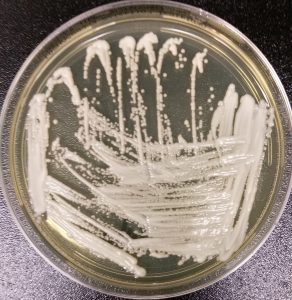NewsDesk @bactiman63
The New York State Department of Health reported 379 clinical cases of the emerging multidrug-resistant yeast, Candida auris in 2022. This is a 30 percent increase compared to the number of cases reported in 2021 (291).

Officials define a clinical case as individuals who were ill and had C. auris detected during their clinical care.
Since 2013, when the first case was detected in New York State, 1454 clinical cases have been reported.
Public health authorities in several countries have reported that C. auris has caused severe illness in hospitalized patients. Infections caused by C. auris often do not respond to commonly used antifungal drugs, making them difficult to treat. Also, C. auris can persist on surfaces in healthcare environments and spread between patients in healthcare facilities. Patients who have a long stay in an intensive care unit, have serious medical conditions, and who have previously received antibiotics or antifungal medications, appear to be at highest risk of infection.
Subscribe to Outbreak News TV on YouTube
C. auris can be spread in healthcare settings through contact with contaminated surfaces or equipment, or from physical contact with a person who is infected or colonized.
In 2023 through March 22, New York state has seen 72 clinical cases of Candida auris.
New York reports dramatic increase in invasive group A streptococcal infections in 2023
New York officials report polio case in Rockland County resident
New York City reports 14 leptospirosis cases, one death in 2021

